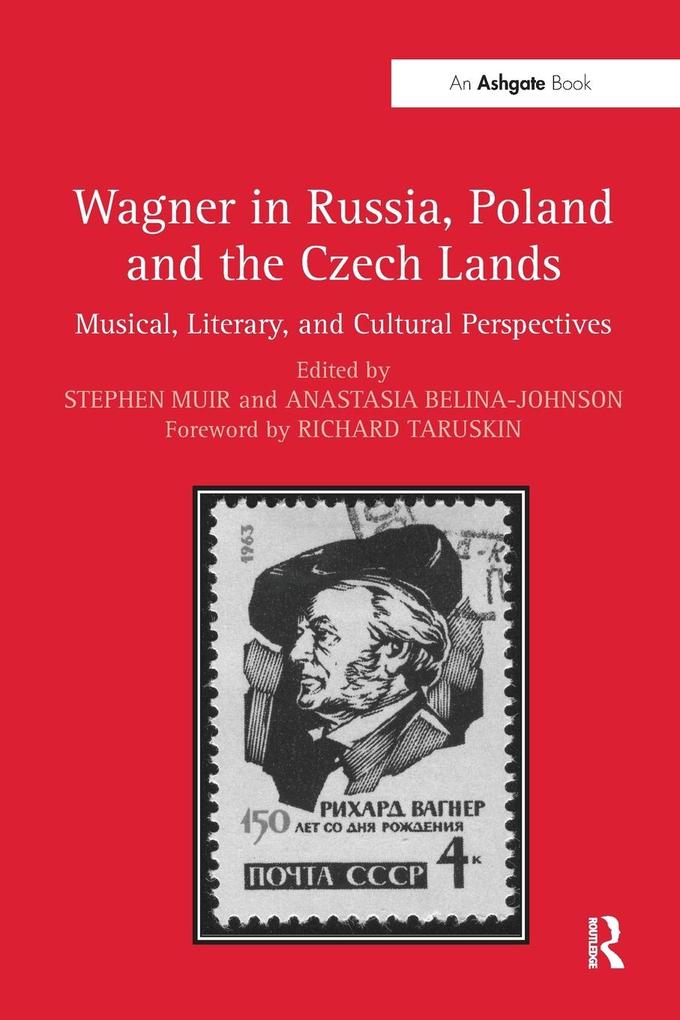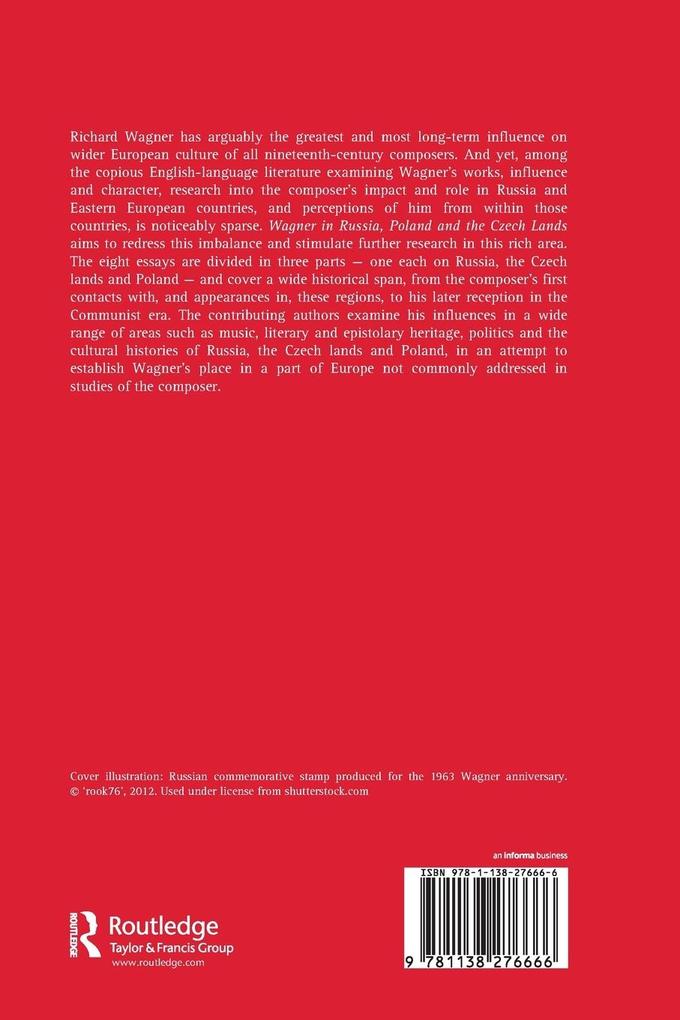
Zustellung: Mo, 07.07. - Do, 10.07.
Versand in 5 Tagen
VersandkostenfreiBestellen & in Filiale abholen:
Richard Wagner has arguably the greatest and most long-term influence on wider European culture of all nineteenth-century composers and yet, among the copious English-language literature examining Wagner's works, influence, and character, research into the composer's impact and role in Russia and Eastern European countries, and perceptions of him from within those countries, is noticeably sparse. Wagner in Russia, Poland and the Czech Lands aims to redress imbalance and stimulate further research in this rich area.
Inhaltsverzeichnis
Chapter 1 'One can learn a lot from Wagner, including how not to write operas': Sergey Taneyev and his Road to Wagner, Anastasia Belina-Johnson; Chapter 2 'The end of opera itself': Rimsky-Korsakov and Wagner, Stephen Muir; Chapter 3 How Russian was Wagner? Russian Campaigns to Defend or Destroy the German Composer during the Great War (1914-1918), Rebecca Mitchell; Chapter 4 Prophecy of a Revolution: Aleksey Losev on Wagner's Aesthetic Outlook, Vladimir Marchenkov; Chapter 5 1The quotation is adapted from an interview with Dvo?ák given to Paul Pry of The Sunday Times, 10 May 1885, p. 6. The complete interview is reprinted in an appendix to (ed.), Rethinking Dvo?ák: Views from Five Countries (Oxford, 1966), pp. 281-8. The original version of the quotation is given below (see footnote 28)., Jan Smaczny; Chapter 6 Wagnerism in Moravia: Janá?ek's First Opera,Šárka, Michael Ewans; Chapter 7 'Where the King Spirit becomes manifest': Stanis?aw Wyspia?ski in Search of the Polish Bayreuth, Rados?aw Okulicz-Kozaryn; Chapter 8 The Reception of Wagner's Music and Ideas in Poland during the Communist Years(1945-1989), Magdalena Dziadek;
Produktdetails
Erscheinungsdatum
28. November 2016
Sprache
englisch
Seitenanzahl
256
Autor/Autorin
Stephen Muir, Anastasia Belina-Johnson
Verlag/Hersteller
Produktart
kartoniert
Gewicht
395 g
Größe (L/B/H)
234/156/14 mm
ISBN
9781138276666
Entdecken Sie mehr
Bewertungen
0 Bewertungen
Es wurden noch keine Bewertungen abgegeben. Schreiben Sie die erste Bewertung zu "Wagner in Russia, Poland and the Czech Lands" und helfen Sie damit anderen bei der Kaufentscheidung.










